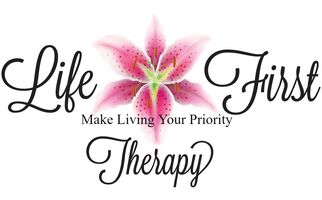 Graduating from high school is such an exciting time for many seniors! It can also be stressful when planning for prom, a graduation party, attending college out of state, etc. Going away to a new city or town can seem like an adventure for some, while others may experience some anxiety behind leaving home and their family. This can be a time for parents to develop a schedule around how often they will be face-timing their young adult. Face-timing is key because it provides a visual parents' can use as a tool to notice if something is not right. Colleges and Universities market and promote the beauty of their campus, how well particular programs rank throughout the nation and state, their extra-curricular activities, etc! Institutions do not promote the use of alcohol and/or drugs, yet it is expected and is the misperceived campus norm when attending college. Some college students develop an opioid dependence from misusing their prescriptions or obtaining them from friends on campus. What happens when your young adult suffers from substance abuse or worse, dies from someone else's use or their own? It can be very difficult to admit having a substance abuse problem when living in an environment that accepts substance use. Educators are usually in a position where they have minimal leverage to help students with substance abuse problems. By the time the issue does come to surface, the student suffers because of the lack of support provided by their institution. Young adults should be able to have a recovery system in place for when they are experiencing their life spiraling out of control due to misusing a substance. Some institutions have mental health counselors readily available, yet what about substance abuse counselors? Institutions can provide support with the expertise of substance abuse counselors as to how it can build a campus-based infrastructure that works with students to prevent substance abuse and relapse, while promoting academic performance. This effort should be community based for the entire student population and institution as a collegiate recovery community or community of recovery professionals on campus. This type of community will enable students to learn how to create a new circle of friends and not return to the same friends who sold and/or used drugs with them. The institution can set up additional support for students, helping them navigate campus resources and maintain their recovery in the face of misperceived campus norms. Students can be treated on an outpatient basis to avoid having to withdraw from school and retake the classes upon their return. If a student does need inpatient care, institutions may consider implementing a drug return program. Not all college counseling centers provide opioid addiction treatment and are referred out to local doctors, but colleges can have Narcan (Naloxone) nasal spray on hand to reverse overdoses of opioids including prescription painkillers and heroin. Students that are opioid-dependent can be safely and effectively treated with buprenorphine (Suboxone) in their institution's counseling center, but some students may perceive that their taking Suboxone has cured their addiction so they stop treatment (counseling, 12-step meetings, sponsorship, etc). Another option for students can be sustained-release Naltrexone (Vivitrol). Vivitrol is administered as a shot, once a month, which can help with the student not having to taper or stop treatment when they are ready. Vivitrol blocks opiod receptors in the brain and does not activate them, blocking the effects of opioids. Students cannot get high on Vivitrol, but they have to detox from opioids about a week before they can start it, which can be a disadvantage. Substance abuse happens at college and although this is not new news, ignoring substance abuse at college does not make it go away. Collegiate recovery, having support for students in recovery attending college, should be the new norm across the nation and not an afterthought when institution's public relations department fail to revive the school's reputation from several tragic substance abuse incidents. Institutions have to consider their specific circumstances and student's needs when setting up its recovery efforts. Admitting substance abuse is becoming more prevalent can be the first step. Early intervention matters as prescription drug abuse become more prevalent!
1 Comment
|
Archives
February 2021
About MeI am a loving and perceptive therapist. I helps professional women of color! I work collaboratively with my clients to build their self-confidence. We identify tools that are needed to build a career and live a life worth living! I listen quietly and attentively remembering details to tell truths that need to be spoken. Let's Connect |
|
CONTACT ME
Phone: 267-598-LIFE (5433) Email: [email protected] Mailing Address 2031 66th Ave, #14176 Philadelphia, PA 19138 |
If you are in a crisis, online therapy is not the best option for you.
Call the National Suicide Prevention Lifeline 1-800-273-8255 or text "988" |
Disclaimer: Please note, the information offered on this website is not, nor is it intended to be, therapy or psychological advice, nor does it constitute a client/therapist relationship. Please consult a physician for individual advice regarding your own personal health and well-being. Thank you.
© 2017-2024 Life First Therapy | ALL RIGHTS RESERVED.
© 2017-2024 Life First Therapy | ALL RIGHTS RESERVED.


 RSS Feed
RSS Feed
